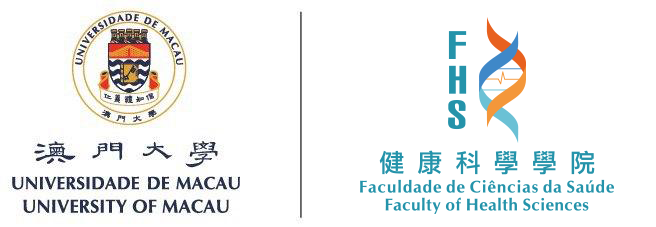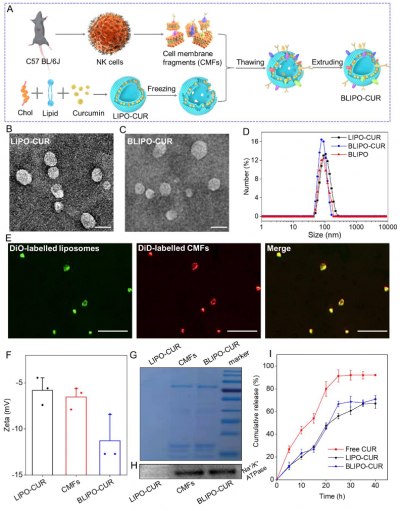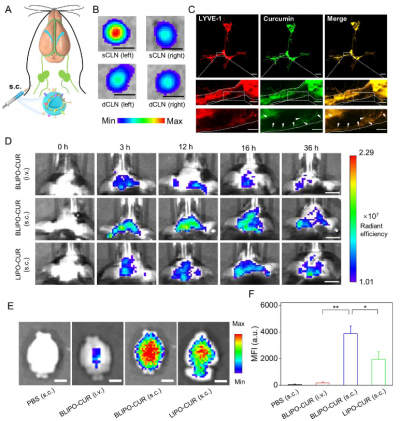A research team led by Zhen YUAN, Professor in the Faculty of Health Sciences (FHS) at the University of Macau (UM), has made a breakthrough in drug delivery for the therapy of Parkinson’s disease (PD). In response to a major clinical need for PD treatment, the team developed natural killer (NK) cell membrane-camouflaged curcumin (a traditional Chinese medicine) liposomes using cell membrane biomimetic technology. They also discovered that using meningeal lymphatic vessels (MLVs) as drug delivery routes could significantly improve the treatment efficacy of PD. The research results have been published in the internationally renowned journal Research.
PD is a major neurodegenerative disease. At present, about five million individuals are diagnosed with PD worldwide, and China has the largest number of PD patients in the world, with nearly three million cases. Current clinical treatments for PD mainly contain chemical drugs, supplemented with physical stimulation. The former is limited by the blood-brain barrier (BBB), whereas the latter is an invasive and expensive treatment with limited applicability to the population. Therefore, it is of great importance to actively develop new and efficient PD treatments for safeguarding health, reducing the financial burden on the government, and improving patients’ quality of life.
Recent studies on drug intervention in brain disorders have shown that MLVs are the most important component of the drainage system in the brain’s central nervous system. In 2020, Chinese researchers used MLVs as drug delivery routes for the first time, successfully bypassing the BBB to deliver nano-drugs to brain tissues, thereby significantly improving the efficiency of glioma treatment. However, MLVs contain large numbers of immune cells, such as macrophages, B cells, and T cells, which play an immune surveillance role and can quickly clear the nano-drugs, and reduce the efficiency of drug delivery to the brain. In addition, drugs delivered to the brain via the MLV route spread throughout the brain, making it difficult to efficiently target the lesion areas. Therefore, the development of an efficient drug delivery mechanism via MLVs for the treatment of severe brain diseases remains a major challenge.
In the study, NK cell membrane biomimetic liposomes demonstrated the ability to target damaged neurons, resist immune cell phagocytosis, and efficiently enter the brain via the MLV route, which significantly improved motor behaviour deficits and pathological damage in PD mice. In addition, biomimetic liposomes could inhibit MPP+-induced neuronal apoptosis and clear α-syn aggregates secreted by damaged cells, thus preventing more severe neuronal damage. Meanwhile, they could deplete reactive oxygen species (ROS) and exert a neuroprotective effect on neurons. The study not only offers new perspectives for biomimetic Chinese medicine for PD therapy, but also provides new ideas for drug delivery in the treatment of various brain disorders.
Prof. Yuan and Zonghai SHEN, a researcher at the Shenzhen Institute of Advanced Technology, Chinese Academy of Sciences, are the corresponding authors of the study. UM PhD student Liu Jing and PhD graduate Duyang GAO are the co-first authors. The project was funded by UM (File no: MYRG2022-00054-FHS). The full version of the research paper can be viewed at https://spj.science.org/doi/full/10.34133/research.0030.



